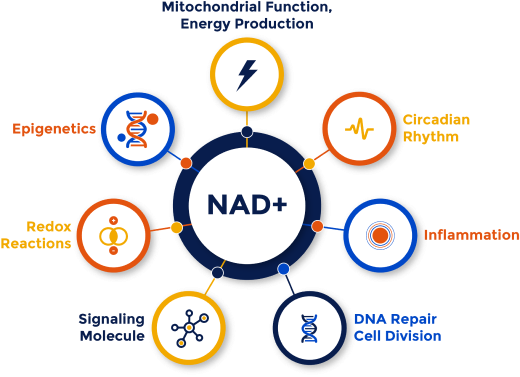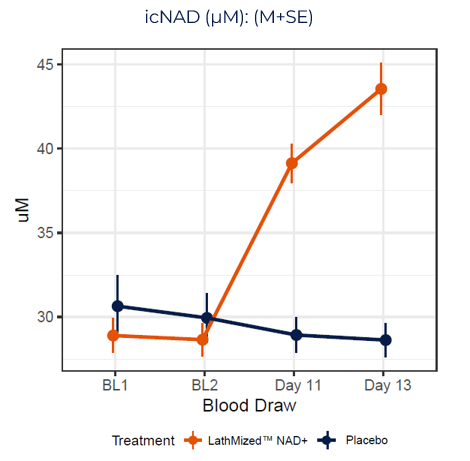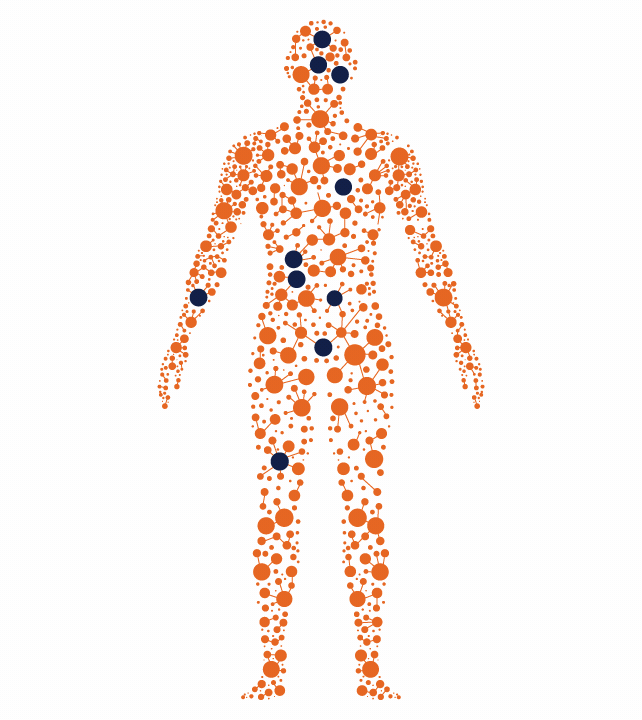Every few seconds, someone is diagnosed with a life-threatening disease like Alzheimer’s, Parkinson’s, ALS, Multiple Sclerosis, or FSHD, a rare type of muscular dystrophy
BRY101 is a multifactorial metabolic modulator engineered to increase intracellular NAD pools, targeting neuroinflammation, mitochondrial dysfunction, and oxidative stress
Bryleos is a woman-owned and women-led company dedicated to making significant advancements in the treatment of multifactorial neurological diseases. Moving beyond traditional single-target drug models, BRY101 is designed to modulate a circumscribed set of pathways with a known role in the pathogenesis of neurodegenerative diseases.
This strategy is designed to address the complex mechanisms involved in neurodegenerative and neuromuscular disorders The dysregulation of these pathways is common across different neurological diseases of aging (in particular Alzheimer’s, ALS, Parkinson’s Disease, Multiple Sclerosis) and highlights the fundamental link between impaired cellular metabolism, neuroinflammation and oxidative stress.
Sustainable and Scalable Innovation
The LathMize™ Platform Technology is a groundbreaking small molecule delivery system designed to enhance bioavailibilty and increase stability for oral delivery of both new molecular entities and existing drugs. This technology eliminates toxic chemicals, uses a waterless process, and reduces energy consumption, making our platform environmentally and economically viable. The Company has developed multiple assets, establishing a clinical roadmap with numerous shots on goal.
What is NAD?
NAD is a pivotal molecule governing crucial aspects such as mitochondrial function, oxidative stress, enzyme activity, DNA repair, inflammation, and a multitude of costly chronic diseases. For over a century, the immense potential of NAD+ has remained untapped in therapeutics. This is primarily due to its inherent chemical instability, rapid degradation in the gut, and limited bioavailability.

Why NAD Matters
NAD is found in every cell in the human body and is essential for creating cellular energy and maintaining healthy cell function. NAD declines with age and is a central factor in the aging process. Depletion of NAD levels is a key feature in multiple chronic diseases, especially those related to oxidative stress, mitochondrial dysfunction and glutamate toxicity.

Current approaches to increasing intracellular NAD have limitations


NAD precursors NMN, NR and NAM are designed to increase NAD levels over time
- High interindividual variability in conversion rate
- Delayed onset of therapeutic effect
- Limited role in pharmacotherapeutics
- More applicable to optimizing wellness vs treating disease


IV NAD+ is not practical or scalable
- Lack of clinical data
- Significant side effects
- Chemically unstable
- Scalability challenges
- Cost prohibitive
- No IP – made at a compounding pharmacy
LathMized™ NAD+ increases intracellular NAD

For NAD to have biological activity, it must enter the cell
- LathMized™ NAD+ rapidly and significantly increases intracellular NAD by 52% within 5 days of oral administration compared to placebo
- Most studies of current NAD precursor products rely on extracellular, circulating NAD measurements or surrogate metabolic markers, such as degradation products in blood and urine as proof of efficacy


Day 11=Day 4 on treatment.
Day 13=One day post-treatment.
Hypotheses Generating
Feasibility Study
Proven increase in intracellular NAD with LathMized™ NAD+ vs placebo (P=4.13×10-13)
Bryleos partnered with the Institute of Systems Biology to conduct an IRB-approved, randomized double-blind placebo-controlled feasibility study of LathMized™ NAD+ Supplement in a sample of healthy aging adults.
- Levels of NAD+ in cells increased rapidly and significantly
- 52% increase in just 5 days
- Well tolerated; favorable safety profile
BRY101 innovation is a catalyst for growth


BNAD101: Pipeline in a drug
The exploratory endpoints of the proof-of-concept study looked at proteomic and metabolomic markers, as well as clinical chemistries at baseline and following 5-day administration.
Statistically significant differences in proteins and metabolites between BNAD101 and the placebo group were observed in additional key areas:

Neurodegenerative and neuropsychology

NAFLD/NASH

Metabolic

Cardiovascular
BRY101: Potential pipeline in a drug
The exploratory endpoints of the Feasibility Study study looked at proteomic and metabolomic markers, as well as clinical chemistries at baseline and following 5-day administration.
Statistically significant differences in proteins and metabolites between LathMized™ NAD+ and the placebo group were observed in additional key areas.
Hypothesis-confirming analysis using InSilico Medicine’s PandaOmics: State-of-the-art A.I. and machine learning target identification and drug repurposing suite to characterize the potential therapeutic relevance of Feasibility Study findings for multiple disease states.

PRIORITY #1: Age related and rare neurodegenerative diseases
BRY101 Hypothesis: A systems approach that modulates a set of interconnected pathways (as opposed to highly isolated targets) has the potential to demonstrate high clinical efficacy in treating these costly neurological disorders
- Oxidative stress
- Due to excessive production or reduced clearance of Reactive Oxygen Species (ROS); DNA and cellular damage, and associated cellular stress responses
- Mitochondrial and proteosomal dysfunction
- Due to misfolded mitochondrial proteins, excessive energy demands due to demyelination, or altered mitochondrial dynamics (biogenesis, fission/fusion); endoplasmic reticulum stress
- Glutamate homeostasis and glutamate-induced excitotoxicity
- Due to impaired amino acid metabolism and accumulation of intracellular and mitochondrial Ca that leads to increase ROS production and apoptosis

Fearlessly committed to changing how the world thinks about costly chronic diseases
Want to change the world? Let’s connect.